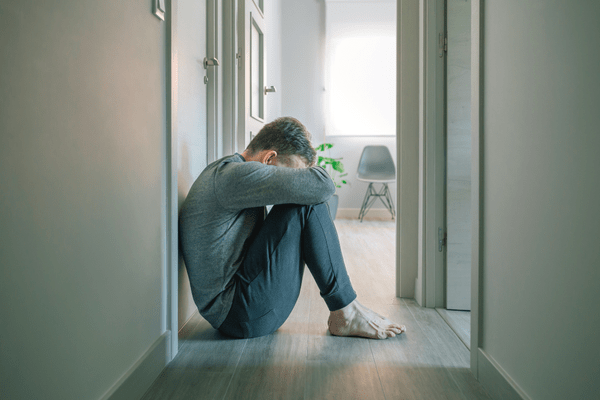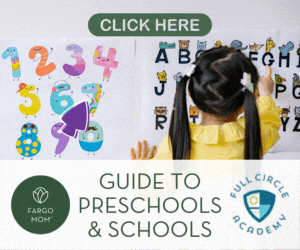
As a mom to four teens, I’ve gotten pretty good at “the talks.”
I remember the “sex talk” I had with my firstborn; my face was bright red as I stumbled through all the elements. I certainly improved with practice. Now I am eager to show illustrations of anatomy and the words “vagina” and “erection” no longer make me as embarrassed as the kids.
One to Add to the List: Suicide
The list of talks you’ll have with a squirmy, reluctant adolescent is long: drugs, alcohol, driving, social media, bullying, smoking, sex, menstruation, health and their bodies, puberty, relationships, finances, etc. And there is another one we parents need to add to the list: SUICIDE.
Get Educated
I recently attended a public viewing of “Break the Silence” at Discovery Middle School in Fargo. This film was created by the Fargo Police Department after the Fargo community suffered the tragic loss of two students by suicide.
I encourage you to watch, at a minimum, the short version of this documentary.
A forum followed the viewing of the documentary where community members were all allowed to ask questions to a panel. The panel included Liam Medd’s parents from Fargo, who are featured in the documentary. Liam died by suicide at age 15 in February of 2021; he attended Davies High School. Both the Medds and Jason and Kari Eckert, whose son Robbie died by suicide in 2018, wish that they would’ve at least had a conversation about suicide with their sons.
Following the panel discussion, I came home and immediately created a list of take-aways that I wanted to remember.
Discussing suicide with my kids is currently as foreign to me as that first sex talk, or trying to teach a teen to parallel park for the first time. It’s not going to be easy. It’s going to be awkward for all of us. And so I wanted to have a list to direct our discussions, because it is so important.
The statistics show that 54% of people who die by suicide show no signs and have no history of mental illness. This is why it’s vital for kids to share their feelings, and for parents to dig a little deeper.
Talking about Suicide with Your Kids: A Parental To-Do List
1. As a parent, you need to model difficult feelings, that “It’s OK to not be OK.”
Talk about the bad days, not just the good days. And share when you’re sad or embarrassed.
2. Create an emergency plan.
Your kids wear a seatbelt in the hope that they’ll never need it. You have smoke alarms in the home and the kids know how to call 911, but they’ll likely never have to.
Prepare for suicidal thoughts like you prepare for other emergencies.
Ask your child to create a list of five people they’d be willing to talk to or call if they had thoughts of self-harm. You do not have to be on the list. For example, it could include friends, other adults, teachers, neighbors, siblings, etc.
Then ask your child if they’d be willing to discuss this “emergency list” with the friends or family they’ve listed. Or, ask if they’d allow you to discuss it with family/adult friends on the list.
3. Save the numbers of suicide prevention hotlines in their phone.
- National Suicide Prevention Lifeline: 1-800-273-8255. Confidential and anonymous, there is also an anonymous chat option.
- FirstLink: Call 211 or 701-235-7335, or text 898-211 — text your zip code to text with a support personnel. Local, anonymous, confidential lifeline.
- Teenline: Call 800-852-8336, 8:00 p.m. – midnight, Fargo time. Or, text TEEN to 839863, 8:00 p.m. – 11:00 p.m., Fargo time. Anonymous, peer-to-peer support from highly trained teens supervised by adult mental health professionals.
- Crisis Text Line from American Foundation for Suicide Prevention. Text TALK to 741741.
4. Kids considering self-harm often tell counselors that they think their parents will be mad.
Tell your kids no matter how many things you have going on, no matter how stressed out you are, you will not be mad. And that although you may freak out about wet towels littering their bedroom floor, you are strong. You are a grown up, can handle a lot of stress, and you won’t be mad.
5. Explain to kids that just because they talk to someone about their thoughts of self-harm, it doesn’t mean that they’re going to immediately be sent to a hospital.
Just like there are different treatments for every illness, the same is true for mental illness. Some illnesses require medications, some require some cream, some require some therapy, and some require you to “keep an eye on it.”
Much like you manage a small illness or infection before it gets out of hand, you can likely prevent a multitude of problems if you talk about any thoughts of self-harm or not feeling okay early and often.
Another Resource
Robbie’s Hope Adult Handbook is a parental guide to discussing suicide and mental health. This handbook was written by teens and the Eckerts. Much like I used books to learn how to talk to my kids about all the things, I will use this guide to talk about suicide with my kids.
It might be awkward and unpleasant, but it is necessary.
Have. The. Talks.
















